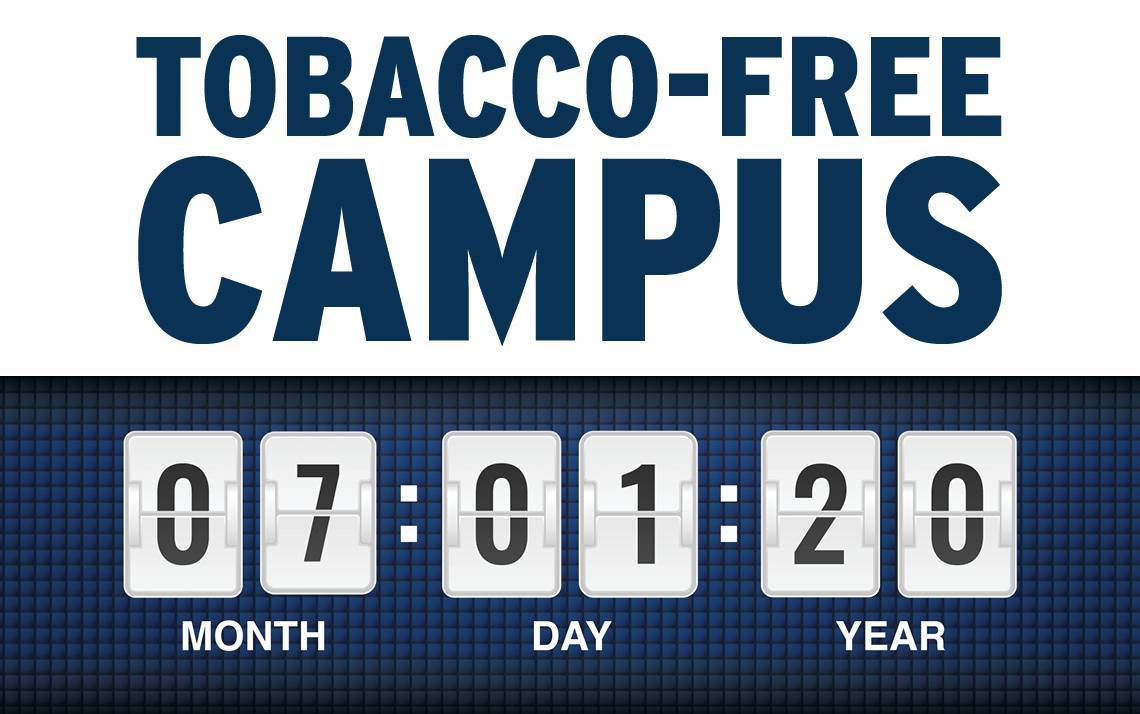Duke University’s Tobacco-Free Policy Begins July 1
Learn about the policy and available treatment resources in a June 2 webinar

On July 1, 2020, Duke University will prohibit the use of all tobacco-based products, including but not limited, to cigarettes, cigars, cigarillos, hookahs, chewing tobacco, snuff and electronic smoking devices. The policy, already in place for Duke Health, applies to all facilities owned or leased by Duke.
The Healthy Duke initiative and Duke’s Tobacco and Smoking Cessation Programs will host a live webinar about the policy and available treatment resources at 10 a.m. on June 2.
“Duke really values creating a healthy environment to live, work, and study,” said Julie Harris, program coordinator for the Tobacco Free Initiative. “Quitting smoking or any tobacco product is the single most important thing you can do for your health. Duke has the treatment resources to help.”
Smoking causes an estimated 480,000 deaths a year, according to the Centers for Disease Control and Prevention. About 16 million Americans live with a smoking-related disease.
Duke employees and their dependents have access to copay-free visits with a provider and low-cost medications using Duke health benefits through the Tobacco Cessation Treatment Program with LIVE FOR LIFE, Duke’s employee wellness program. Other treatment pathways are available through a collaboration with the Duke Smoking Cessation Program, a comprehensive physician-led service that provides tobacco dependence treatment.
Greg Charalambous, 24, started smoking with friends in the summer after high school. A year later, he was smoking a half pack a day.
“It was a way to relieve stress,” said Charalambous, a patient transporter for Duke University Hospital.
Eventually, Charalambous struggled breathing and used an inhaler for taking stairs. He tried quitting cold turkey and failed multiple times.
Charalambous enrolled in LIVE FOR LIFE’s Tobacco Cessation Treatment Program shortly after he moved from Maine to take a job at Duke Hospital in August of 2018.
He met monthly with the LIVE FOR LIFE tobacco treatment specialist team, which consists of a tobacco treatment specialist/coach and an Employee Occupational Health & Wellness nurse practitioner. The nurse practitioner prescribed medication and nicotine gum to help Charalambous quit. The medication and gum each cost $10 a month under the LIVE FOR LIFE program. The meetings with LIVE FOR LIFE’s treatment specialist team were free.
Charalambous, who started biking or running every day, has not smoked since November of 2018.
“My mom and friends had always asked me to stop smoking but hearing it from a nurse was the motivation I needed,” Charalambous said. “Quitting led to a lot of healthy changes. I’m reading, cooking and exercising more. I just feel so much better.”
Watch a video on Duke's tobacco-free policy below:
Have you quit tobacco or smoking? Share your story here.